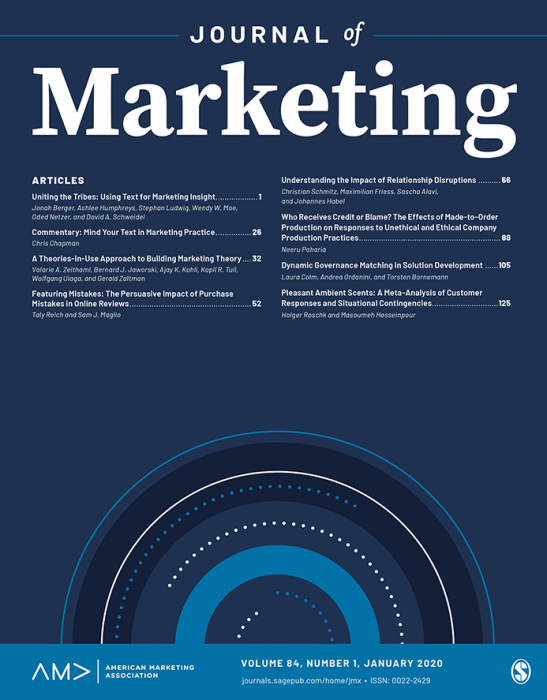EXPRESS: No Comments (from You): Understanding the Interpersonal and Professional Consequences of Disabling Social Media Comments
IF 10.4
1区 管理学
Q1 BUSINESS
引用次数: 0
Abstract
Presumably in an effort to reduce cyberbullying and promote mental health, online influencers often limit viewers’ ability to post comments. In this research, we find that influencers incur significant interpersonal and professional repercussions for doing so. Across a Twitter dataset and six experiments utilizing both consequential and hypothetical dependent measures, we find that consumers form more negative impressions of and are less persuaded by influencers who disable social media comments. These outcomes are driven by the perception that the influencer is less receptive to consumer voice (e.g., consumers’ thoughts, opinions, and suggestions) and, thus, less sincere. However, we find that this effect is mitigated in situations where consumers feel that it is reasonable for influencers to prioritize self-protection.快讯:禁止评论(来自您):了解禁用社交媒体评论的人际和职业后果
可能是为了减少网络欺凌和促进心理健康,网络影响者经常限制观众发表评论。在这项研究中,我们发现有影响力的人这样做会招致严重的人际和职业影响。在 Twitter 数据集和六个实验中,我们利用后果性和假设性因果测量方法,发现消费者对禁用社交媒体评论的有影响力者形成的负面印象更深,说服力更弱。造成这些结果的原因是消费者认为影响者不太愿意接受消费者的声音(如消费者的想法、意见和建议),因此也不太真诚。然而,我们发现在消费者认为影响者优先考虑自我保护是合理的情况下,这种影响会得到缓解。
本文章由计算机程序翻译,如有差异,请以英文原文为准。
求助全文
约1分钟内获得全文
求助全文
来源期刊

Journal of Marketing
BUSINESS-
CiteScore
24.10
自引率
5.40%
发文量
49
期刊介绍:
Founded in 1936,the Journal of Marketing (JM) serves as a premier outlet for substantive research in marketing. JM is dedicated to developing and disseminating knowledge about real-world marketing questions, catering to scholars, educators, managers, policy makers, consumers, and other global societal stakeholders. Over the years,JM has played a crucial role in shaping the content and boundaries of the marketing discipline.
 求助内容:
求助内容: 应助结果提醒方式:
应助结果提醒方式:


